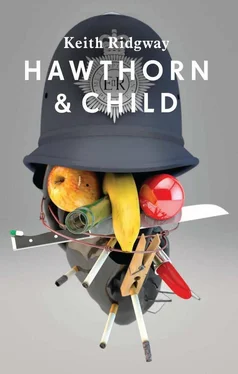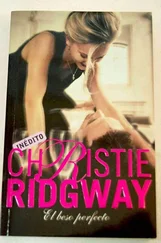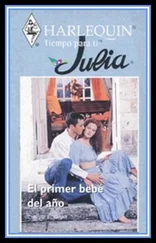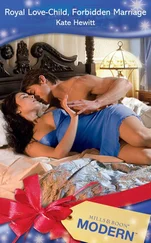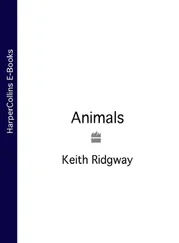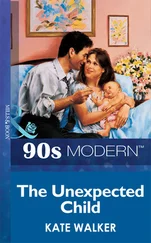— I will grant you the Lower Arches, Welland. You may store your metals there. You may come and go. You may not step into the Joiner’s Wood. If you break this agreement I will kill your child.
— My Lord, said Welland. I am honoured and gratified. Blessings to your ancestors and your offspring and your days.
Estator sniffed him once more and felt no error nor change, and laid his forepaw on the ground in a gesture of peace, and turned with his escort of the blade, and travelled back to Smittenfield, by way of the Cross Gates, where new markings from men were investigated and found to be nothing but the putabouts of children.
*
What on earth are ‘putabouts’?
If it’s an allegory, it’s one that I cannot decipher. But surely that’s what it is. Full of references to gangsters, and cops-and-robbers codes. What else could it be, if the police are so keen, if they know the name of the lead character? What else?
I tell Morgan that I’m going to work at home in the afternoon, and he chases me with various bits and pieces until nearly two o’clock, but by three I’m at my desk looking out at the park and the air is cold and cluttered with patches of fog and cloud and people are in scarves.
It’s some sort of exposé. It is a revelation of concealed things. It is secrets, laid out.
I pour myself a Highland Park and put my feet up and I keep a notepad by my side and I read the sweating manuscript again, and when I think I understand something I write it down. I do this for an hour.
Then I have a better idea.
The roads are scrapes on the ground and the buildings are scabs and the traffic is blood, and there the metaphor runs away from me somewhat. I spend most of my time getting rid of such things. Cutting and scoring through. I am all claw. And my thinking now is tangled.
I am on a bus full of children.
It has taken me a while, and the Internet, to work out the route. It’s a two bus journey. The second of which has taken on board a troop of grey-and-black-dressed schoolkids. They are all anoraks and backpacks and hand-held devices. They look, with their thermal hats and their earpieces, like commandos. Like paratroopers. As if this is a transport Chinook over night-time Helmand, and when the doors open they will GO, GO, GO, one at a time, plummeting fifteen thousand feet on to some high jagged plateau. Do they jump from that height? Probably not. But they are not silent and watchful, this crowd. There are no tight-eyed nerves and thoughts of home. That’s their older brothers. This lot scream and shout and barge into people and are raucous to the point of frenzy.
I have never killed a child.
When you lift the skin from an arm or a leg it’s very different to lifting the skin from the torso. And the back of the torso differs from the front. And on the front the abdomen differs from the chest, the shoulder from the pelvis, etc. The body is a multitude of ways of coming apart. I wonder about the differences with children. Scale. Finicky business, probably.
The bus rolls over little hills and down along narrow streets with the houses getting bigger and then smaller and then bigger again with economics. I sit tight. I listen to the children shouting. Sheer bloody murder. They smell of plastic and nylon. They are smeared in orange and Coke and crisp dust and stinking deodorants. They barge into each other. They are in the aisle beside me, pushing, calling, shouting, banging on windows for attention. I decide. I have decided. If one of them comes close, leans in to me, is pushed on to me, falls on to me, I will whisper in his or her ear. Calm and cold, so only she or he can hear:
Listen, right. If you touch me again I will cut your throat.
It will be the voice that scares them.
It’s all railings and patches of balding grass, and damp mud and rubbish. There are no signs but for a small faded board, once blue, on which the ghosts of several business names can be made out. AXEL SYSTEMS. MASTERSONS. ALLISTON: SCRAP METAL. There is the vague smell of shit and diesel. I look at my shoes and the hem of my coat.
I walk past one way, going north I think, though the sun is nowhere to be seen and I really have no idea. It will be dark soon. It may be dark already. There is a wide gate, made of the railings — gunship grey — which is open, and inside I can see a portacabin thing on the right hand side, and a rough wall on the left, which seems to form part of a building. All grey brick, unpainted. There is a small ramp somewhere halfway down, clumsy concrete, and what may be a metal door. A door, anyway. Further on, I can’t see.
I go as far as a corner. A lane runs down the side of the building, the railings pressed up against the grey bricks, their tops a three-pointed claw-like cutter leaning slightly outwards, blunt and cold. The lane disappears into a drizzly distance, seeming to turn towards empty ground, wasteland. There is a clump of trees. Beyond there is either a railway or a road. Waste ground. Lost shoes. A jacket. Dusk, you’d call this, if you could see the sky.
I walk back the other way. It seems south only because the view has more in it. I can see some tower blocks in the middle distance, a huddle of office blocks to the right, where the bus left me. But I don’t know where I am.
I look further in this time, and see a pile of car wrecks — shells — a muddy road, track really, turning to the right over puddles and reflections and shallow ruts of earth. A low open-fronted building with lights on, like a small warehouse, where I can see a man standing behind a van, his back to me, too far to make anything out. I walk as slowly as seems reasonable but still it isn’t enough, and I can’t make anything out to the right of the open building — though perhaps the curve of the track means that I wouldn’t be able to anyway, I should have looked there first, too late now I’m past it. Just the railings now. Then a fence, a plain solid fence, and after a bit I can see the top of a shipping container. Or something very like a shipping container. Then the end of the fence. A dark building. Abandoned maybe.
There is the odd car passing on the road. The ones coming from the south surprise me each time as they crest the hump of the little bridge over what I hesitate to think of as a canal. Look at it. A ribbon of sick-looking tissue. Such as you get when you peel skin in strips from a bruised bit of back, for example. Looks liquid but barely is.
I go over the bridge. I stare at my phone. It’s dark now, more or less. There is a missed call from Morgan. I look at my shoes and the hem of my coat. I hesitate for a quarter of a minute. I think of Trainer hanging in his attic. It must be worth knowing — what makes a man do that.
I go into the little place. The enclosure. Like a camp. It is like a camp. Gypsies at the edge of town. I would not be surprised by a fire. There is no one around. The man who was at the van has disappeared. The van is where it was, but it’s not Mastersons. Axel Systems , says a sign on a closed door. I’m not hiding. I’m just walking through here. Wide open. If anyone asks I will invent a car. Broken down, outside the town. No. That won’t do it. A car though. I have a car that needs a new … wing. What sort of car? A Toyota. A Toyota Anus. Venus. There is mud everywhere.
I find what must be Mastersons. In a corner. Not what I thought of. It’s a proper building. It looks old. Like it might at one point have been a roadside garage. A small hangar shape. Not so small maybe. Medium-sized. Lights on. There’s a big M above the closed, wide, metal doors. A big old brown M. No life. Railings to the left. Wall to the right. You can see that the main hangar has some sort of extension there to the right. There is a small door set in to the big doors. On the right. A step-through. In the railings to the left there is an open gate. Seems to lead to the side of the building. There’s noise. From inside. OK. So. Door in the doors to the right. Gate in the railings to the left. I stand in the mud looking up at the M.
Читать дальше
